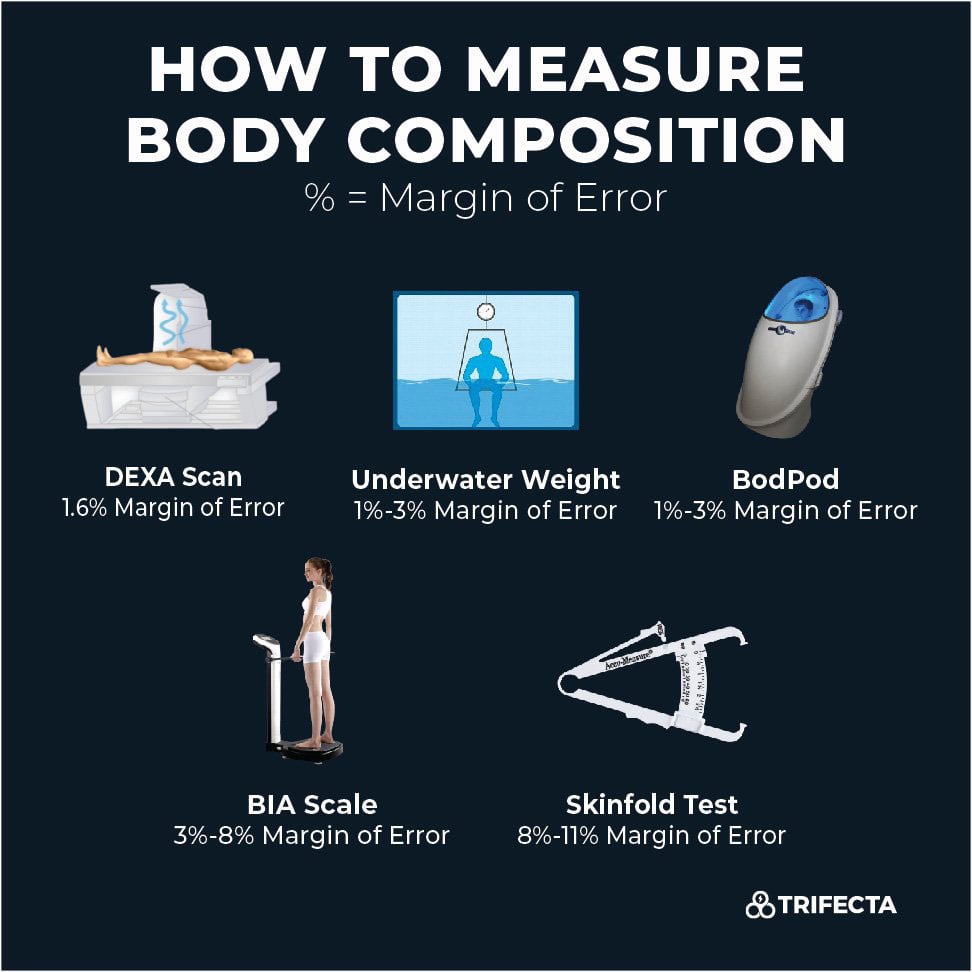I've been relatively skinny my whole life. I have spent many years trying to gain muscle mass but have only started to make progress within the last two years.
Along my journey, I have met people who are super bulky, super trim, or are skinny but very strong nonetheless!
Last week while reflecting on the variety of body types I have seen over the years, I started to wonder "How much muscle mass should I try to gain to live a long, healthy, and independent life? Is there an ideal amount? Is more muscle always better? And what is the role of muscle mass in longevity?"
These questions sent me down a research rabbit hole trying to understand everything about muscle mass and its effects on longevity.
One finding was particularly shocking and changed my approach to strength training entirely.
Here is a summary of my findings.
What is muscle mass?
Muscle mass is a measure of the amount of muscle tissue in your body, including skeletal, smooth, and cardiac muscles.
It is usually expressed as a percentage of your total body mass, and average muscle mass percentages differ by age group and sex as can be seen below:

It's worth noting that muscle mass differs from lean mass. In addition to muscle mass, lean mass includes organs, bones, skin, and body water. Pretty much everything that isn't body fat. So, lean mass is calculated as 100% minus your body fat percentage.
If you hear people talk about muscle mass above 60%, they are more than likely referring to lean mass instead of true muscle mass.
How is muscle mass measured?
Muscle mass is difficult to get an accurate measurement of, especially if you're trying to use at home methods.
The most accurate way to measure muscle mass is with a full-body MRI scan. They can then measure the volume of all the muscles and predict muscle mass with high accuracy. Of course, this is a pretty expensive to have done.
You could also use lean body mass as a proxy for muscle mass, especially if you're trying to track progress overtime. Even though lean body mass includes organs, bones, skin, and body water, these do not necessarily fluctuate when running an exercise regimen aimed at muscle gain. Again, lean body mass is calculated as 100% minus your body fat percentage.
There are a whole host of ways to measure body fat percentage. Arranged from most accurate to least, these include skinfold tests, electrical impedance tests, water displacement, air displacement (BodPod), and DEXA (x-ray) tests. It is worth noting that DEXA also produces muscle mass percentage directly with high accuracy.

Credit: Trifecta
Why is muscle mass important?
Muscle mass is important because, everything else being equal, more muscle mass means greater strength. Greater strength means less frailty and greater independence, especially later in life.
It can not be overstated how important strength is later in life. Strength helps prevent falls, keeps you mobile, and helps regulate blood sugar as muscle has a higher metabolic rate than other tissues.
This means that the last decade of your life can be spent having fun with grandchildren rather than constantly being bedridden in a care center. Many people are scared of living to a high age (let's say 90) but that's primarily because they imagine many of their last years being in a care center. Muscle mass can change that.
And though all these benefits are particularly helpful later in life, more muscle mass can be of major benefit to you today:
- If you have a goal of loosing fat, the higher metabolic rate of muscle will help you burn more fat even when you aren't working out.
- The better regulation of blood sugar caused by muscle tissue can help prevent the onset of type 2 diabetes, a disease which is crippling more and more young Americans each day.
- The little aches and pains that you feel starting to creep in at 40 years old can be mitigated by greater strength and muscle balance.
(Note: The benefits of more muscle mass assumes all other factors being equal. If more muscle mass comes at the cost of injury to tendons, less flexibility, or undue heart stress, then it likely isn't beneficial.)
Why you should gain muscle mass early in life
Pay attention to this section, because this was the most critical finding in my research rabbit hole.
Starting as early as 35 years old, your body will slowly start to lose muscle mass in a process called sarcopenia unless you continue to do strength training. If you keep to a good training regimen, it is possible to continue to gain muscle mass even into your 50's, but sarcopenia makes it ever more difficult to gain or even maintain the muscle mass you do have.
Put another way, after roughly the age of 50, it is mostly a matter of maintaining the muscle mass you have gained rather than trying to gain more.
Thus, the main takeaway should be abundantly clear: Build muscle mass early in life and work on maintaining it in later years.
Similar to how everyone (but especially women) should try to get as much calcium early in life to increase bone strength as bone density reaches a peak and starts to degrade after a certain age.
How do you gain muscle mass?
Gaining muscle mass starts with a good strength training regimen.
A "good" strength training regimen looks different for each person, but there are some general guidelines I can give:
- Strength is built as you progressively overload your muscles. This means that gradually increasing the amount of stress and weight placed on a muscle will increase its strength over time.
- You need to give each muscle enough training without overtraining it. This usually means 3-10 sets per muscle or muscle group per week, and potentially working up from there.
- For each workout, you will want to choose a weight or intensity that allows you to do a max of 12 reps in any given set, but ideally something between 4 and 8 reps. Anything more than 12 and you'll be primarily training muscle endurance rather than strength.
- Muscles need sufficient rest to get stronger after a workout. Unless you're a professional body builder, you should not be working out the same muscle or muscle group every day.
- Muscles require sufficient protein in order to grow in size and strength. When trying to put on muscle mass, you'll need to be eating at least 0.7 grams of protein every day for every pound of body weight you have. Many people even target 1 gram for 1 pound of body weight. Getting in at least 30 grams of protein 30 min after a workout is particularly important.
- Creatine is a well-studied supplement for increasing strength. Creatine is naturally created and stored within our bodies and is a critical part of creating energy for muscles. But without enough natural creatine, your muscles will run out of energy before being properly stressed, thus making your workouts less effective.
- Lastly, workout with good form and never try to workout through pain. Of course there is dull pain associated with exertion on your muscles, but feeling sharp pain or continued pain should be a sign to go see a physical therapist.
Finding the right workout regimen should be highly tailored to your circumstance. Consider working with a personal trainer or at least using online resources to build the right regimen for you.
What is an ideal muscle mass percentage?
There isn't really an "ideal" muscle mass percentage.
The majority of Americans today don't have a healthy amount of muscle mass due to the conveniences of modern life including cars, washing machines, and desk jobs. As such, aiming to be in the high to very high percentages for your age and sex (per the table shown in the first section) should be your goal.
This might cause you to ask, "Is it possible to gain too much muscle mass?"
From everything I've researched, the answer is no. As long as you're building muscle through natural means (vs steroids), it would be very difficult to gain so much muscle mass that it would be harmful to your health and longevity.
I have two caveats to my answer though:
1. If gaining more muscle mass comes at the cost of increased injury to joints and tendons, causes you to be significantly less flexible, or puts undue stress on your heart, then a lower muscle mass would be ideal.
2. I have not done deep research on steroids to know its long-term effects on health. My intuition, however, says that muscle mass that can only be gained through steroid use is not worth it when looking at overall health and longevity.
(Note: Genetics play a large role in your ability to gain muscle mass, so don't be overly stressed about aiming for a specific muscle mass percentage. Just focus on gaining strength and being able to do more with your body than you could the day before.)
Conclusion
Muscle mass is a measure of the total amount of muscle you have in your body as a percentage of your body weight. More muscle mass means more strength, and more strength means greater health and independence both today and later in life.
Get started on a solid strength training regimen today so it can start paying you dividends for years to come.

